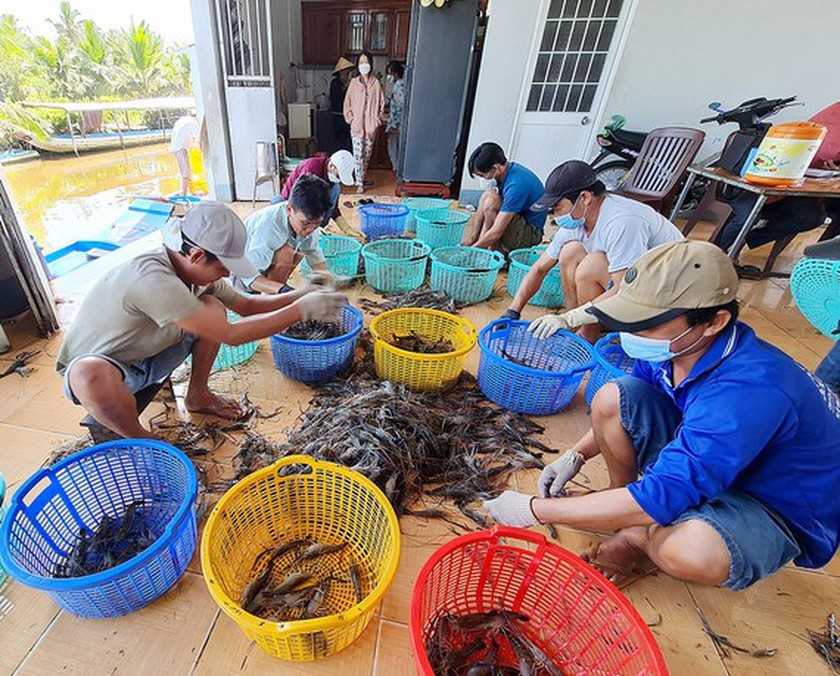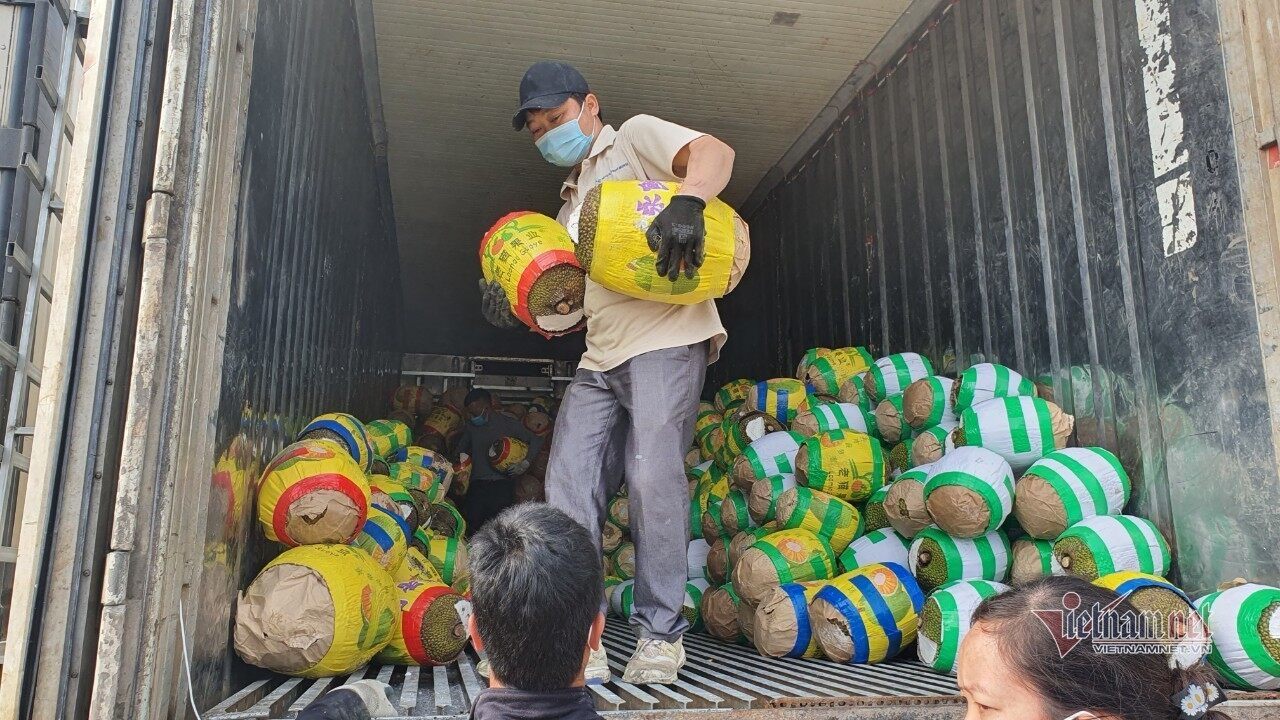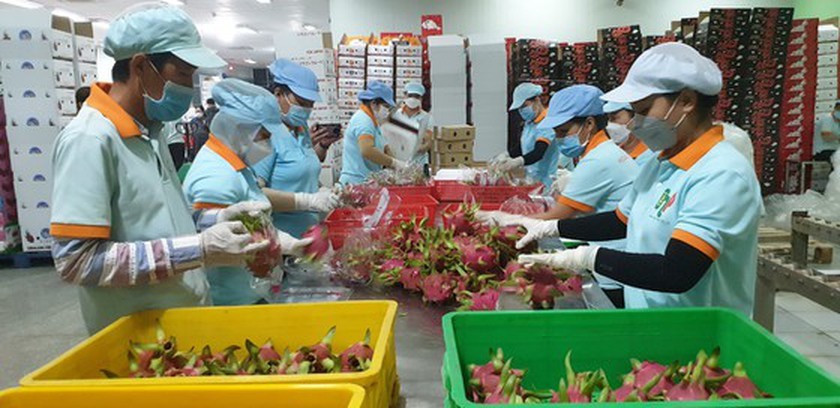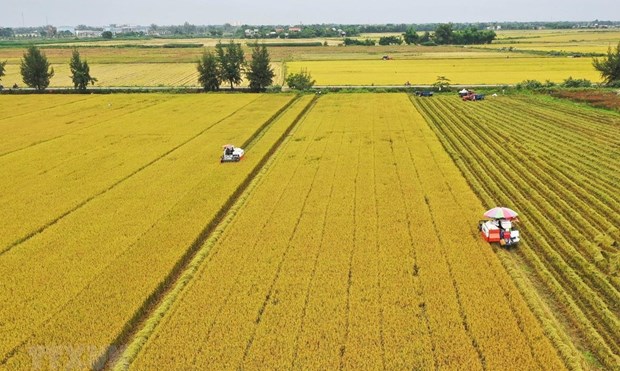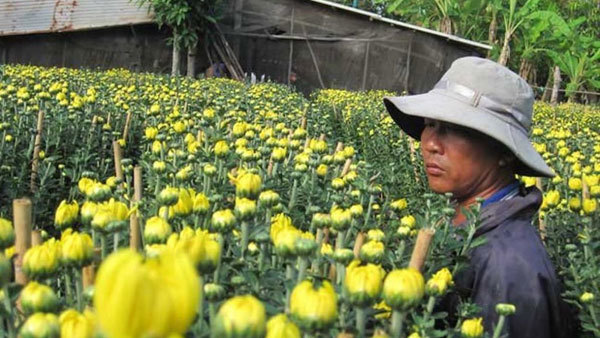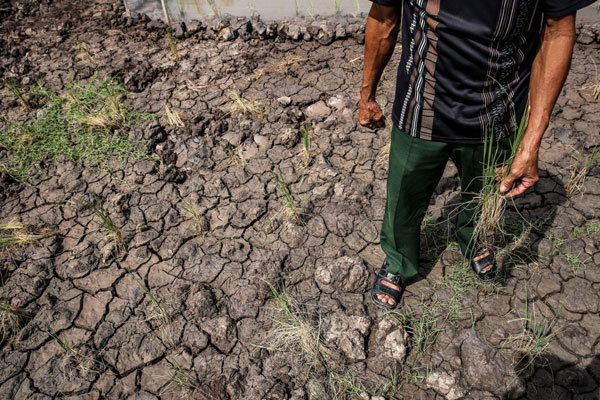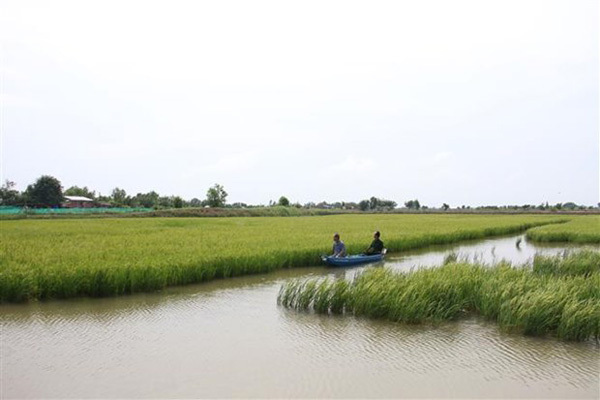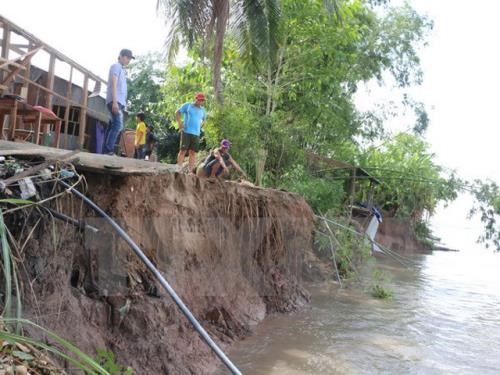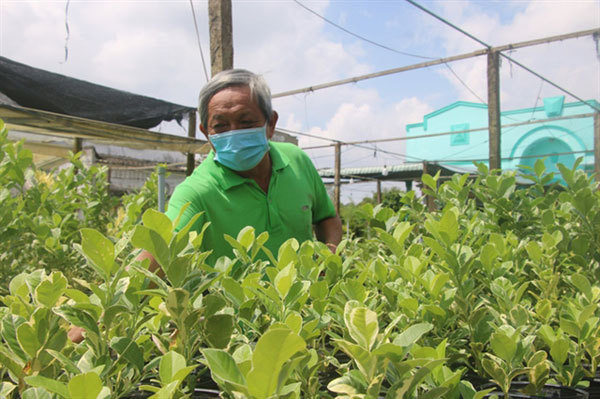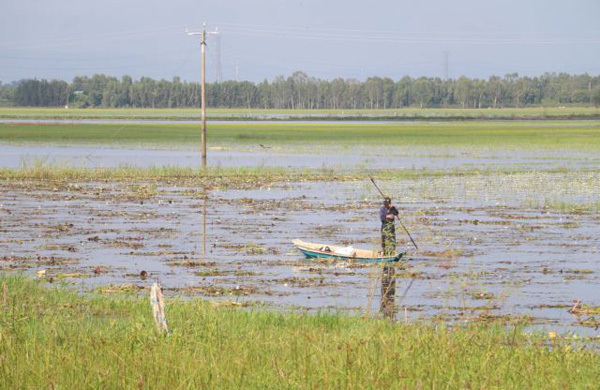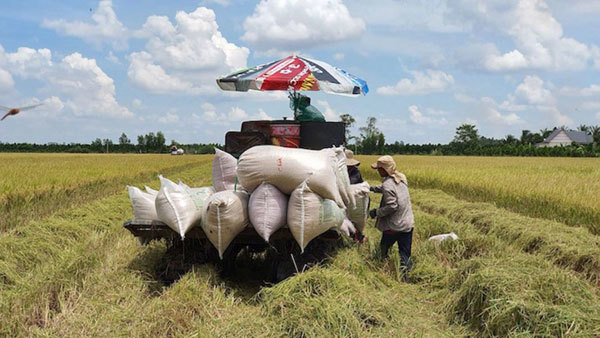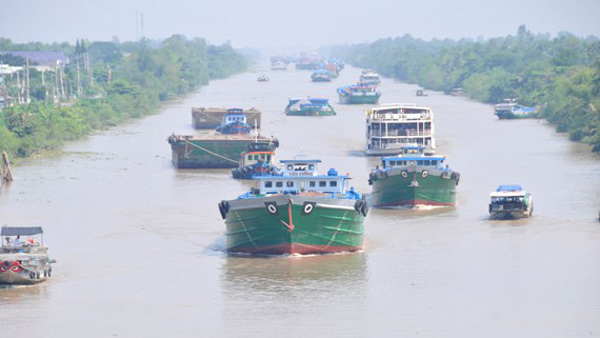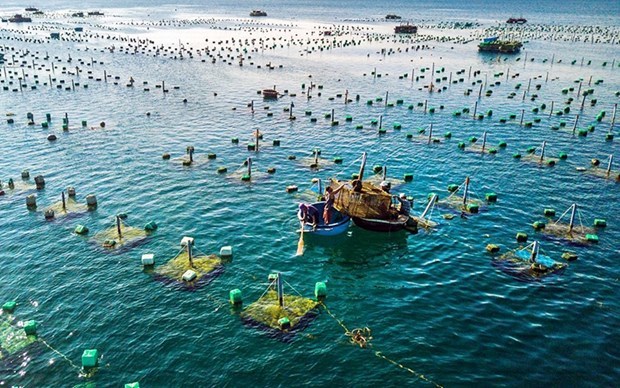- © Copyright of Vietnamnet Global.
- Tel: 024 3772 7988 Fax: (024) 37722734
- Email: [email protected]
mekong delta
Update news mekong delta
Rice-shrimp production has good harvest, high prices
Farmers in the Ca Mau peninsula are delighted as they enjoy a bumper rice crop on shrimp farming land.
Gold, US dollar smuggling produces a stir in Mekong Delta
A series of big gold and US dollar smuggling cases with a high number of involved subjects are under investigation.
Unofficial-quota trade alone is not solution to fruit, vegetable sales
As the total annual output of vegetables and fruits is 28 million tons, unofficial-quota exports and domestic consumption alone won’t use up this amount.
HCMC, Mekong Delta develop formal distribution system of farm produce
Vice Chairwoman of HCMC People’s Committee Phan Thi Thang promised to bring goods from the Mekong Delta into wholesale markets and distribution systems in HCMC to support farmers and cooperatives for connection of supply and demand.
Mekong Delta faces challenge to reducing greenhouse gas emissions in rice farming
Rice production is one of the largest sources of greenhouse gas emissions in agriculture, and how to reduce the emissions while still ensuring food security and raising farmers’ income
Mekong Delta’s flower production for Tet falls by half due to Covid
Flower farmers in the Mekong Delta have cut their production for the upcoming Lunar New Year holiday (Tet) by half, or even 70% in some areas, compared with last year due to concerns over the Covid-19 pandemic.
Mekong fishermen struggle to survive
As dawn breaks on the serene lake of Binh Thirn in An Giang Province, fisherman Dang Huu Duc instructs his 17-year-old son to cast a net into the clear water of the largest freshwater lake in Vietnam’s Mekong Delta.
Mekong Delta expands environmentally-friendly shrimp-rice farms
The Cuu Long (Mekong) Delta is expanding its shrimp – rice farming areas as the cultivation model is efficient and sustainable, adapts to climate change, and is environmentally friendly.
Low-lying Mekong Delta deals with worsening land subsidence
The Mekong Delta region needs “consistent strategies” to deal with groundwater extraction, land subsidence and saltwater intrusion in an increasingly urbanising area, experts said at a conference in HCM City on November 26.
Flower farmers do not dare grow large quantities for Tet amid Covid uncertainty
Many flower and bonsai farmers in HCM City and the Cuu Long (Mekong) Delta have reduced production for Tet (Lunar New Year) which falls early next year since they are worried the COVID-19 pandemic will affect demand.
Mekong Delta sees dramatic rise in new COVID-19 cases
The Cuu Long (Mekong) Delta city of Can Tho has posted a record number of daily new COVID-19 cases, with the number of cases reaching 712 on Wednesday, according to the municipal Department of Health.
Late flooding season results in low sediment levels, fewer aquatic food sources in rice fields in Mekong Delta
The Mekong Delta's flood season, commonly called “floating water season”, caused by the rising level of the Mekong River in the rainy season, arrived in September, about one month late compared to other years.
Mekong Delta has some 2.5 million tons of rice left for export
With the local rice demand taken into account, the Mekong Delta region has some 2.5 million tons of rice left in November and December that can be exported.
Mekong Delta faces risk of COVID-19 outbreak
As the number of new COVID-19 community cases continues to increase, the Cuu Long (Mekong) Delta is facing a risk of a large-scale outbreak.
Mekong Delta localities raise COVID-19 alert level as cases surge
The Mekong Delta provinces are scrambling to control an unexpected surge in community cases of COVID-19, with many showing unknown sources of infection.
Mekong Delta provinces face high risk of COVID-19 cases under “new normal”
The Mekong Delta provinces are faced with a high risk of COVID-19 infections with 1.6 per cent of people returning from pandemic hotspots testing positive for the virus after the provinces resumed production under the “new normal”.
Mekong Delta to boost investment in transport infrastructure
The Cuu Long (Mekong) Delta region needs a special mechanism to improve its transport infrastructure to reduce logistics costs, bolster competitiveness and boost agricultural exports, Minister of Transport Nguyen Van The has said.
Project on marine aquaculture development till 2030 approved
Deputy Prime Minister Le Van Thanh has recently signed Decision No.1664/QD-TTg approving a project on marine aquaculture development till 2030 with a vision to 2045.
COVID-19 claims thousands of businesses in Mekong Delta
The COVID-19 pandemic has forced up to 7,941 enterprises in the Mekong Delta to suspend their operations or register for dissolution in the first nine months of this year.
Saline intrusion may occur earlier in Mekong Delta
The level of saltwater intrusion may be approximately at the level of 2015-2016, which saw historic salinity and drought in the region.
